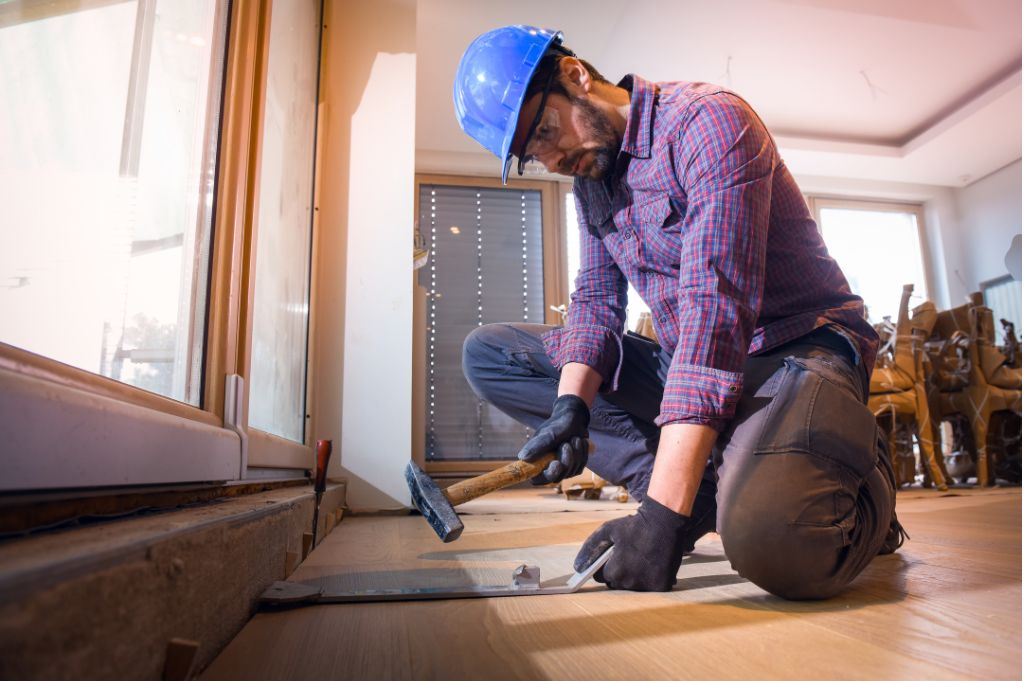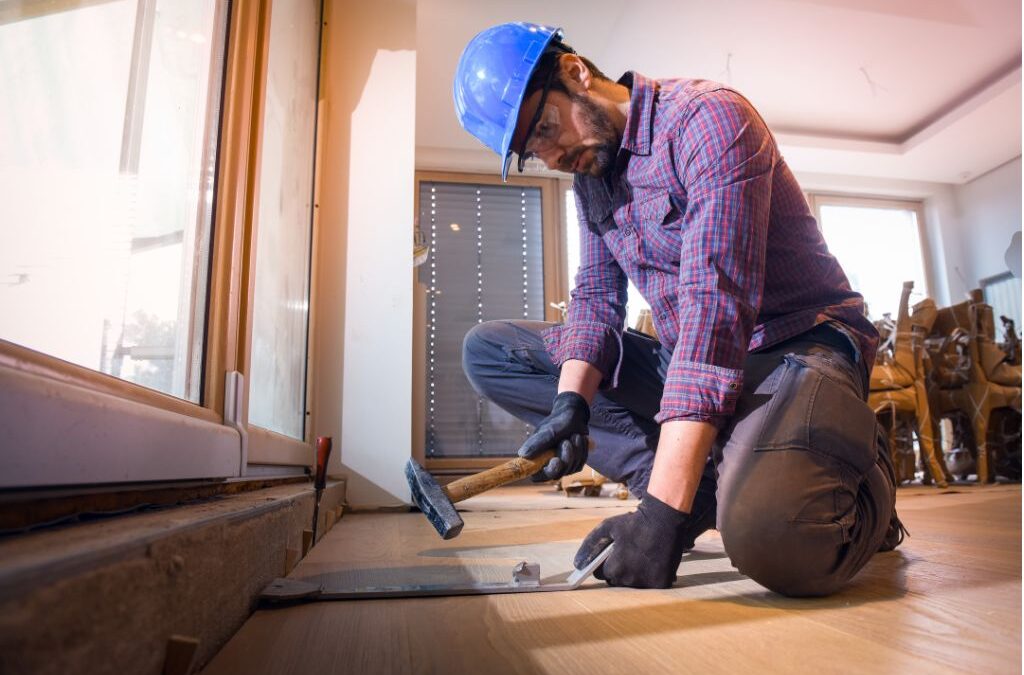When deciding on the ideal flooring for your home, the perennial debate of “Hardwood vs Engineered Hardwood Flooring” often takes center stage. Both options offer unique characteristics that can significantly enhance your living space. In this article, we will delve into the composition, durability, ease of installation, versatility, areas of use, and resale value of both hardwood and engineered hardwood, helping you make an informed decision tailored to your needs.
Composition of Hardwood and Engineered Hardwood
Overview of Hardwood
Hardwood flooring, in the context of “Hardwood vs Engineered Hardwood Flooring,” is a classic choice, known for its timeless beauty. It comprises solid wood planks, typically 3.25 inches in width, with varying plank widths from 5 to 10 inches. Hardwood’s authenticity and natural variations in grain patterns make it a sought-after option for those seeking a traditional and rich aesthetic.
Overview of Engineered Hardwood
Engineered hardwood, within the spectrum of “Hardwood vs Engineered Hardwood Flooring,” combines the beauty of real wood with added stability. It consists of multiple layers of plywood topped with a layer of true hardwood. This construction minimizes the impact of moisture and temperature changes, making it suitable for a wider range of environments. Engineered hardwood often comes pre-finished, offering a convenient option for homeowners.
Durability Comparison
Hardwood Durability
True hardwood, when examining “Hardwood vs Engineered Hardwood Flooring,” is renowned for its longevity, with a lifespan of up to 40 years if properly maintained. Any scratches or blemishes that accrue over time can be addressed through refinishing, a process that can be repeated multiple times. The hardness of the wood type chosen for the flooring can influence its durability, with hardwoods like oak and maple being particularly resilient.
Engineered Hardwood Durability
In the realm of “Hardwood vs Engineered Hardwood Flooring,” engineered hardwood can also last for decades, but with a bit more caution. Unlike hardwood, it can only be refinished two or three times. Proper care is crucial to ensuring its durability over a span of 20 to 30 years. The durability of engineered hardwood is influenced by the quality of its top layer, with thicker hardwood veneers providing more opportunities for refinishing.
Ease of Installation
Professional Installation for Hardwood
Hardwood installation demands precision and professionalism, an essential aspect of the “Hardwood vs Engineered Hardwood Flooring” discussion. Whether nailed or stapled down, this process requires the expertise of a seasoned installation company. While it may take an afternoon, the result is a flawlessly installed hardwood floor that adds timeless elegance to your home.
Options for Engineered Hardwood Installation
Within the debate of “Hardwood vs Engineered Hardwood Flooring,” engineered hardwood offers more installation flexibility. It can be installed through stapling, nailing, gluing, or lock-and-click methods. Although professional help is recommended, the process is generally quicker than installing traditional hardwood. The versatility in installation methods makes engineered hardwood a practical choice for various subfloor conditions.
Versatility of Flooring Types
Options for Hardwood
Hardwood flooring, when considering “Hardwood vs Engineered Hardwood Flooring,” provides unparalleled versatility. Virtually any wood type can be transformed into a hardwood floor, offering a broad spectrum of choices. From common varieties like maple to exotic options like Brazilian Cherry, the possibilities are vast. The natural beauty and character of hardwood allow homeowners to choose a flooring option that complements their interior design preferences.
Versatility of Engineered Hardwood
In the discourse of “Hardwood vs Engineered Hardwood Flooring,” engineered hardwood, topped with real hardwood, boasts similar versatility. While there are some restrictions due to width, homeowners still have a diverse array of options to choose from. Engineered hardwood’s stable construction allows for wider planks and is available in various wood species, giving homeowners the flexibility to achieve their desired aesthetic.
Areas of Use
Suitable Areas for Hardwood
Hardwood, within the framework of “Hardwood vs Engineered Hardwood Flooring,” is ideal for high-traffic areas such as living rooms and stairwells. However, caution is needed in areas vulnerable to moisture, like kitchens and bathrooms. Prolonged exposure to moisture can lead to cupping, warping, and curling. Hardwood’s vulnerability to moisture necessitates protective measures, such as proper sealing and regular maintenance.
Engineered Hardwood in Different Spaces
In the context of “Hardwood vs Engineered Hardwood Flooring,” engineered hardwood can be used in similar areas but is less vulnerable to moisture. Its multi-layer composition makes it more resistant, providing slightly more versatility throughout different spaces in a home. Engineered hardwood is suitable for moisture-prone areas like kitchens, offering homeowners a flooring option that balances durability and resilience in challenging environments.
Resale Value Impact
Contribution of Hardwood to Home Value
Hardwood flooring significantly contributes to the resale value of a home within the spectrum of “Hardwood vs Engineered Hardwood Flooring.” Buyers are attracted to the durability and visual appeal of hardwood floors, making them a wise investment. Homes with hardwood flooring often command higher prices in the real estate market, appealing to those seeking a timeless and high-quality living space.
Engineered Hardwood and Resale Value
In the Hardwood vs Engineered Hardwood Flooring debate, engineered hardwood, benefiting from its hardwood topping, holds the same sway over resale value as true hardwood. Potential buyers recognize the lasting quality it brings to a home. The engineered hardwood’s durability and aesthetic appeal contribute to the overall desirability of a property, making it an attractive option for homeowners looking to enhance their home’s market value.
Decision-Making: Hardwood vs Engineered Hardwood
In the end, the choice between true hardwood and engineered hardwood, as discussed in Hardwood vs Engineered Hardwood Flooring, comes down to personal preferences and specific needs. Both options stand as excellent flooring choices, offering durability, aesthetics, and value. Homeowners should consider factors such as their lifestyle, budget, and aesthetic preferences when making this important decision.
Conclusion: Hardwood vs Engineered Hardwood Flooring

Hardwood Vs Engineered Hardwood Flooring – Flooring Source
In the everlasting debate of Hardwood vs Engineered Hardwood Flooring, the conclusion is clear: you can’t go wrong with either. Both options present outstanding choices for homeowners looking to enhance their living spaces with quality flooring. For all your flooring needs, trust Flooring Source of Texas. Visit our website here or call us at (972) 778-6855. We provide a wide variety of flooring options and styles, ensuring your new floor installation is in good hands.

